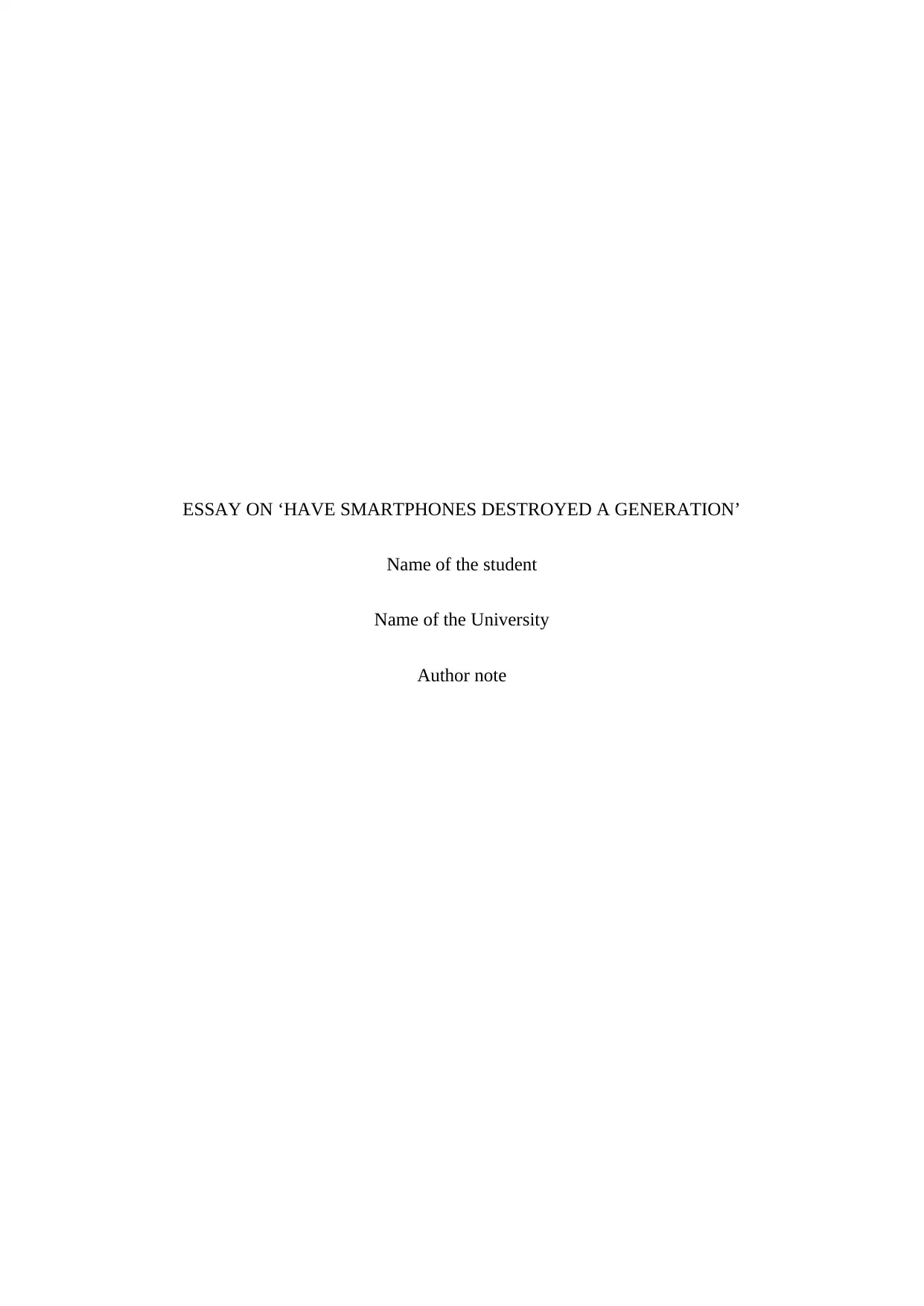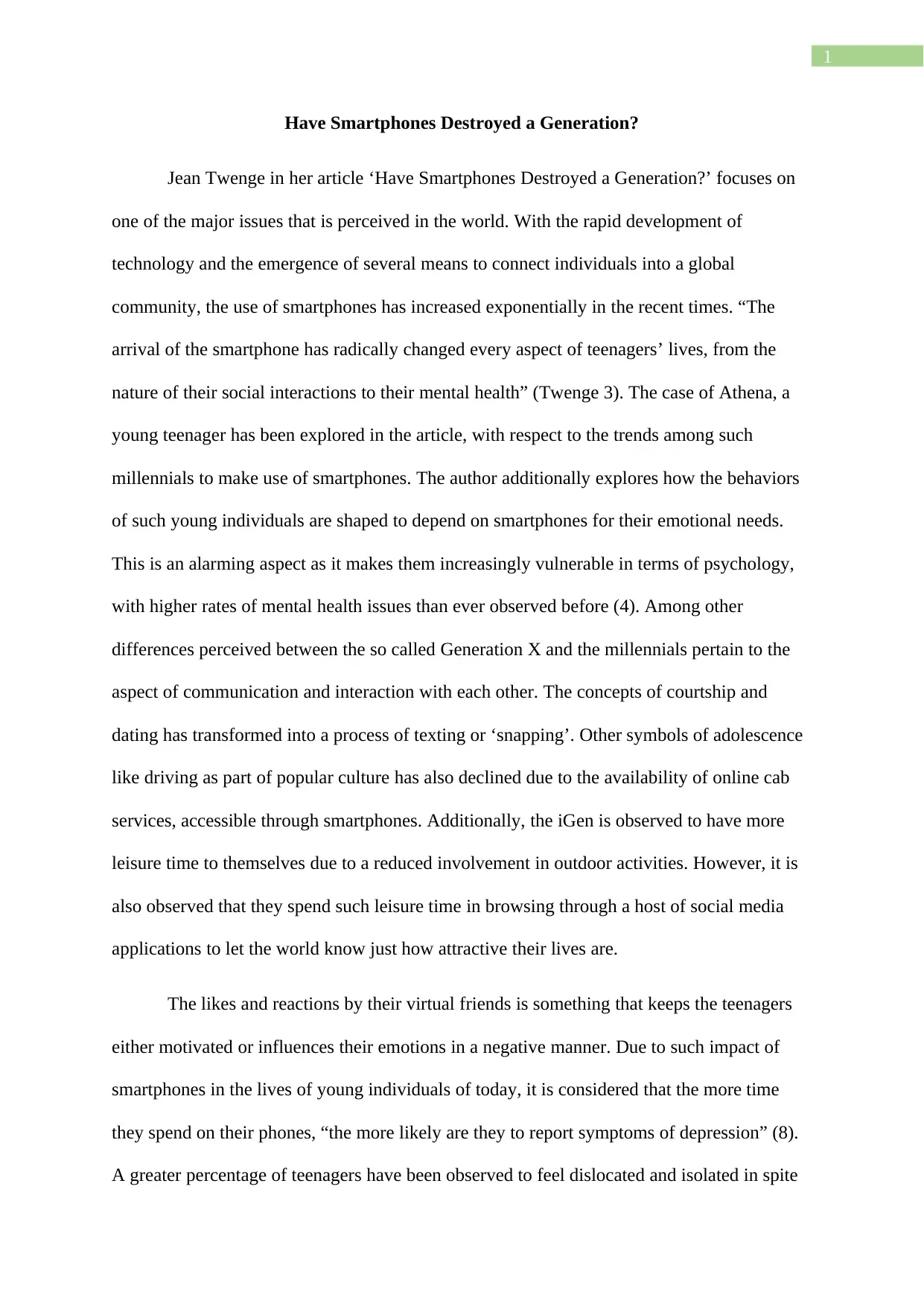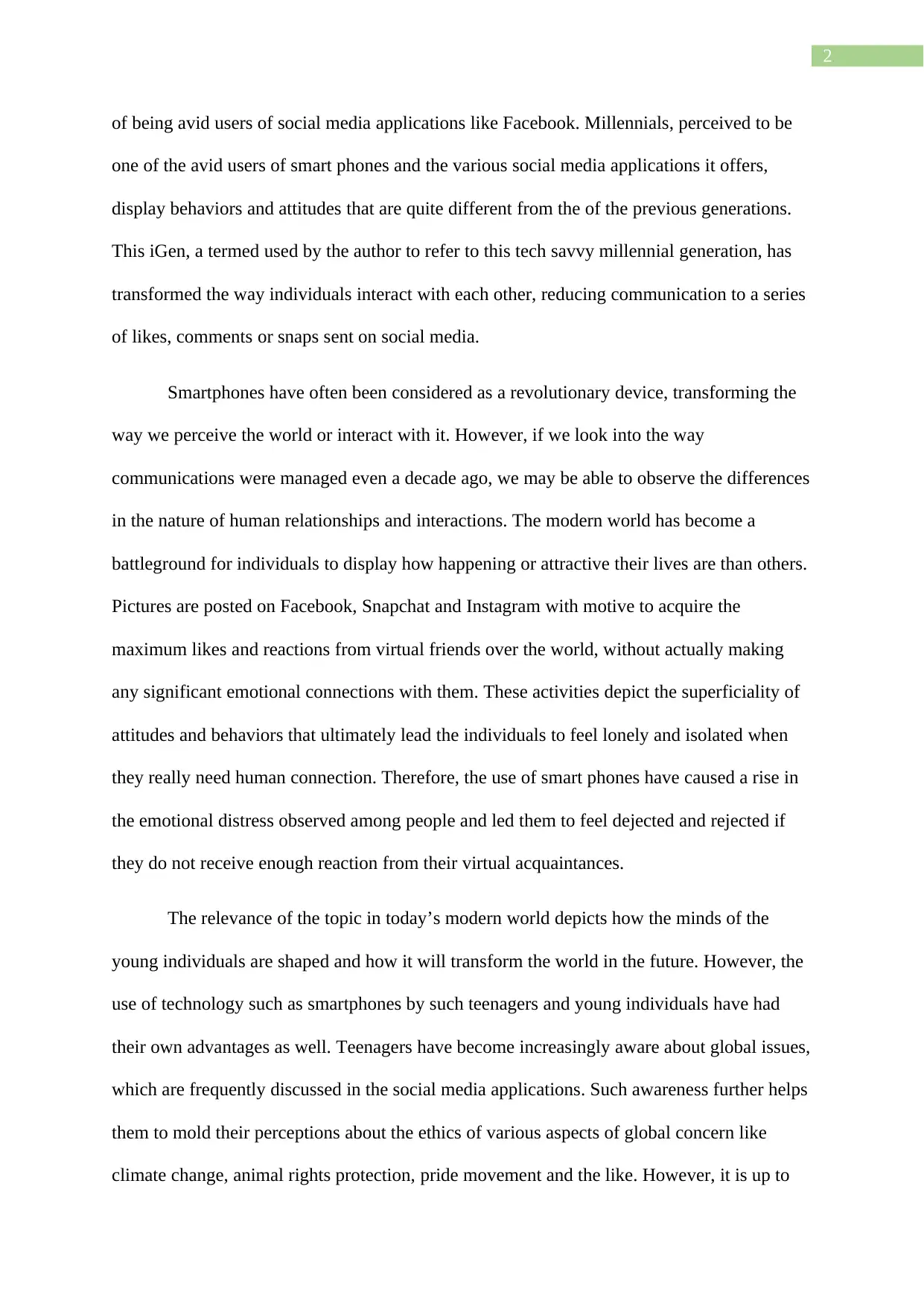Essay on Smartphones: Impact on the iGen Generation, ENC 1101
VerifiedAdded on 2022/10/02
|8
|855
|313
Essay
AI Summary
This essay analyzes Jean Twenge's article, "Have Smartphones Destroyed a Generation?", which explores the profound impact of smartphones on the iGen generation. The essay summarizes Twenge's argument that smartphones and social media have negatively affected the mental health and social interactions of young people, leading to increased rates of depression, anxiety, and feelings of isolation. The essay highlights the shift in communication styles, with texting and online interactions replacing traditional forms of socializing, and the rise of superficial online personas. The student also explores how smartphones have changed behaviors like driving and leisure activities. The essay discusses both the advantages and disadvantages of smartphones, acknowledging the increased awareness of global issues that smartphones offer while emphasizing the potential for parental and school intervention to mitigate the negative impacts. The essay concludes by emphasizing the importance of understanding how technology is shaping the minds of young individuals.
1 out of 8















![[object Object]](/_next/static/media/star-bottom.7253800d.svg)